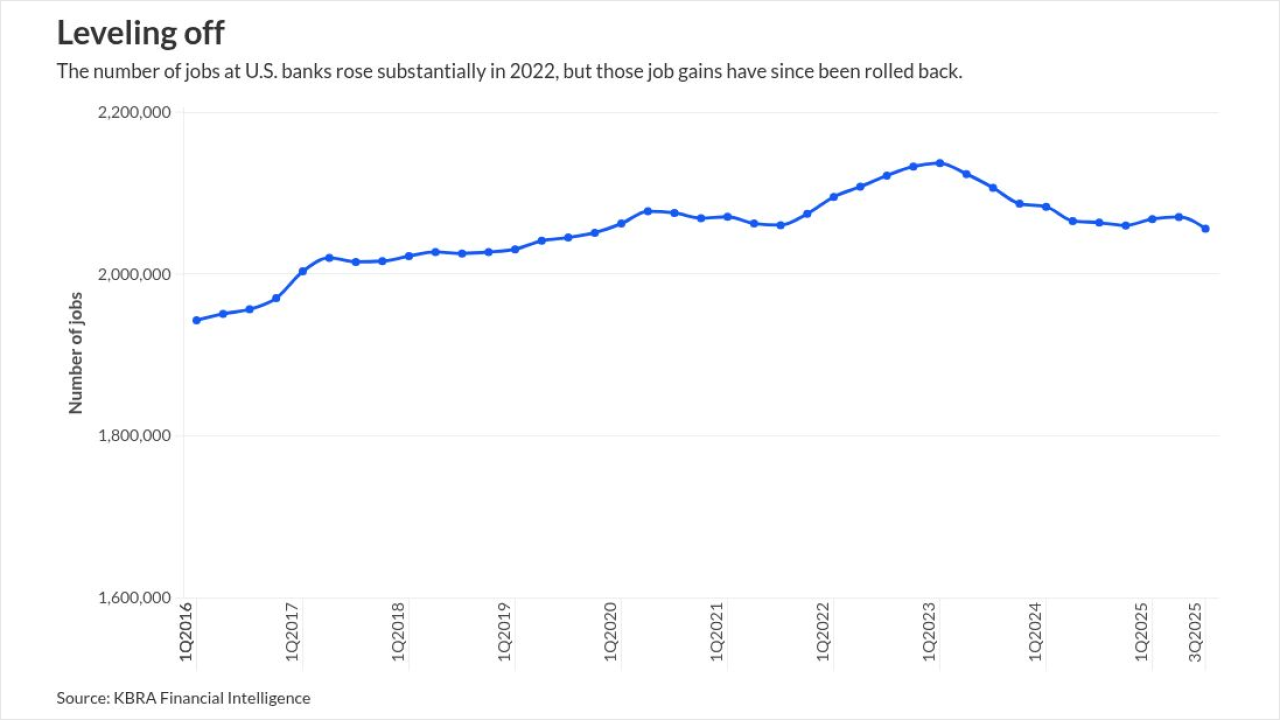
A collection of business groups asked the Treasury secretary Monday to repeal Biden-era guidance that made it easier to designate nonbanks as systemically important financial institutions, or SIFIs — a designation that can apply enhanced prudential standards like capital and liquidity rules to nonbanks.
The U.S. Chamber of Commerce, the Securities Industry and Financial Markets Association's Asset Management Group and the Managed Funds Association were among the groups that signed the letter urging Secretary Bessent to take the action in his capacity as chair of the Financial Stability Oversight Council, which is empowered to designate nonbank financial firms as SIFIs.
"The most recent 2023 guidance took a step backwards by widening the definition of 'threat to the financial stability of the U.S.,' expanding the industries and activities that could be designated, and eliminating … due process provisions," the groups wrote. "It is imperative to return to the 2019 guidance to restore transparency and due process at FSOC so that well regulated nonbanks are not designated without appropriate justification."
In the letter, they voiced support for
"Designations should not be a metric for achieving FSOC's mandate and could make the U.S. financial system less competitive and more vulnerable to economic shock," they said. "Designation of a nonbank as a SIFI by FSOC poses a material change to how the company is regulated … [and] results in bank style supervision of a nonbank by the Federal Reserve Board that includes new onerous requirements for supervision, examination and regulations that impose significant costs."
The FSOC, led by Biden-appointed Treasury Secretary Janet Yellen,
FSOC has focused on an activities-based regulatory framework for nonbank financial institutions, and experts always expected that to continue under Trump. Despite the current expanded authority, FSOC made no systemically important financial institution designations under President Biden — signaling continuity with Trump-era policy that emphasized industry-wide risk over firm-specific oversight.
Former Treasury Secretary Janet Yellen in September expressed concern that further deregulation under Trump could threaten financial stability by weakening FSOC's tools to identify and mitigate systemic risk.
The FSOC was established by the Dodd-Frank Act in 2010 after the financial crisis required major cash injections for a number of nonbank financial firms — most notably insurance giant AIG, which received funds from the Troubled Asset Relief Program and the New York Fed totaling roughly $182 billion. Congress empowered FSOC to designate individual firms as SIFIs, which would subject them to regulatory and supervisory requirements overseen by the Federal Reserve Board.
The council designated four companies — AIG, GE Capital, Prudential and MetLife — during the Obama administration, though those designations were
The banking industry generally favors a level playing field between banks and nonbanks. In 2022, the American Bankers Association and Consumer Bankers Association supported a CFPB procedural rule expanding the agency's authority to supervise nonbank entities that pose risks to consumers in a






